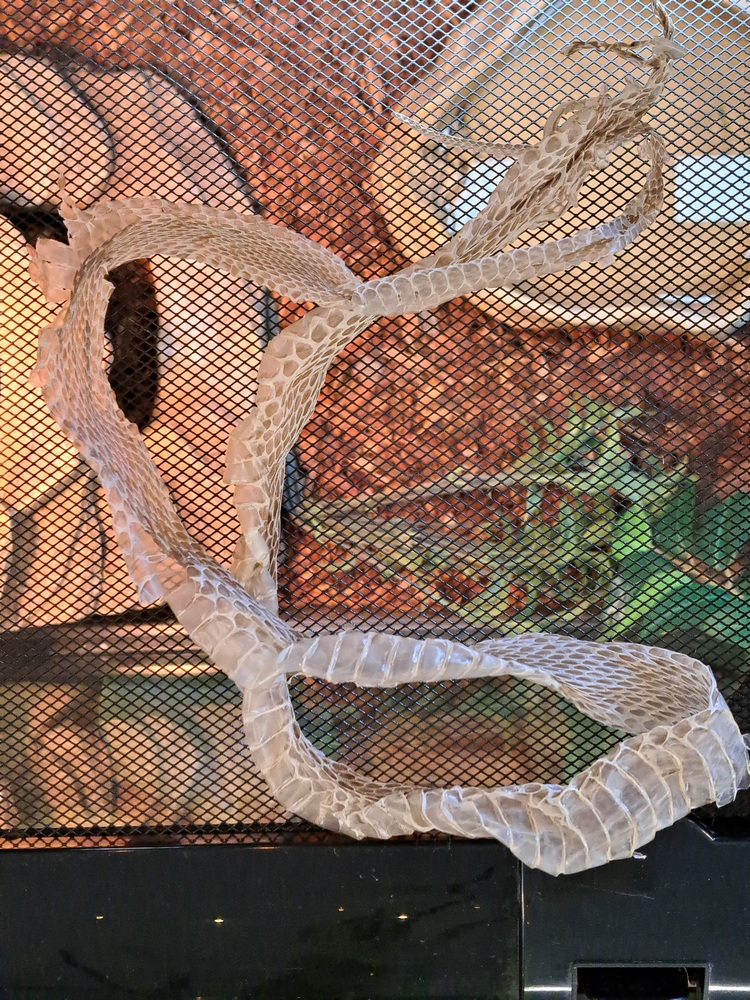TBM41: Preparedness in the Spiritual Kitchen
The final spiritual practice I want to talk about is Preparedness. Preparedness is one of the most important tools available to you in your quest to balance the 4D needs of your soul with the 3D needs of your body.
When I was growing up, I spent several years in Brownies and then Girl Guides. Part of the Guiding motto was to “always be prepared.” This, as it turns out, was excellent spiritual advice.
Before I say more, I want to emphasize that when I say “Preparedness,” I’m not in any way talking about “preparing your soul to meet God.” The idea of preparing your soul is a religious claim, a claim based on the idea that your soul is corrupt and needs to be saved. Me, I think your soul is good and doesn’t need to be rescued because it was never lost in the first place. (Silly me.)
I’m talking here about something quite radical in spiritual circles: the idea that building your intuition and being in full relationship with God requires you to pay attention to and honour many of the small, practical, everyday concerns you may be taking for granted at the moment.
Preparedness, as I’m describing it here, is strongly linked to your capacity for common sense. Common sense can be defined as the practical result of listening to your own intuition.
In the analogy of the Spiritual Kitchen, Preparedness is exactly what it sounds like. It means being organized in the kitchen, keeping track of supplies you need to buy, cleaning up dishes you’ve used so they’re ready for the next recipe, remembering where you’ve stored your less-commonly used pots and pans, and taking overall responsibility for the smooth functioning of the kitchen.
Preparedness in this sense is not a thought experiment. It’s not a mystical practice of trying to reach out with your superior meditative skills to suss out the ideal Platonic Form of God’s own divine recipes. What we’re talking about here is remembering to put toilet paper on your grocery list.
Preparedness is all about having the sense to keep toilet paper in the bathroom, milk and bread in the fridge, gas in the car, and some basic tools in the cupboard so you can fix things instead of throwing them out and buying new ones because you’ve never taken the time to learn the difference between a Robertson #2 and a Phillips #3.
Preparedness means you’re willing and able to look after the practical everyday needs of yourself and your family. It means you’re prepared for the occasional small emergency. It means you have actual physical, practical stuff on hand (like a first aid kit, a sewing and mending kit, a basic toolkit, a few emergency canned goods, an extra set of house keys, a list of important contact numbers, and accurate financial records properly filed in one convenient place) so you can deal swiftly and effectively with normal household accidents instead of standing there wringing your hands in panic and despair and waiting for God to step in and “fix it” for you.
In other words, it’s your willingness to take personal responsibility for your everyday needs.
Note that you’re not being asked to prepare for every conceivable emergency. And you’re not being asked to keep enough medical supplies on hand to run a field hospital. And you’re not being asked to keep a year’s worth of canned goods on hand. These choices would amount to obsessive-compulsive behaviour, hoarding, and a complete lack of common sense. Preparedness is the “sweet spot” where you have the basics on hand without crossing the line into hoarding.
I keep a sewing kit in my apartment. I have the basic things I’m likely to need in order to sew on a button or mend a hem. I have several spools of thread in colours that match my wardrobe. Do I have a spool of thread in every colour? No. I don’t need every colour. I only need the colours I’m likely to use on a regular basis — black, brown, green, blue, and assorted beiges. The colours in your sewing kit would be different from mine because you have different colours in your wardrobe.
I make no claim to being an expert sewer. For expert repairs, I know a good tailor. But I can — and should — look after my own clothes to the best of my ability. When I take the time to properly care for my clothes, I’m showing my respect for the gift of the nice clothes I have, clothes that help me feel like “me,” clothes that keep me warm, clothes that help me look presentable at work, clothes that contribute in a small but relevant way to my daily happiness. I’m saying to God that I don’t take my clothes for granted. I’m saying to God that anything worth having as a 4D-soul-in-human-form is worth caring for. I’m saying I’m not “too good” or “too important” to learn how to use a sewing needle or a Robertson screwdriver to the best of my ability. I’m saying that my work as a mystic and channeller can wait a few minutes while I hang up my freshly laundered sweaters and clean the toilet, inside and out, so I feel better about the space I’m living in. I’m saying that all these small things matter to my soul.
A few weeks ago, I did something kinda dumb. I left my headlights on all day while I was at work. When I came out, my car wouldn’t start. And I don’t belong to a car owner’s club like C.A.A. or A.A.A. because I can’t afford it. But I do try to be somewhat prepared when it comes to car ownership. So I keep a few tools in the trunk. And a couple of old blankets (because I live in Canada). And an old waterproof jacket in case I have to stop at the side of the road in bad weather. And a set of jumper cables.
As soon as I realized I’d drained my car battery by mistake, I jumped out of the car and flagged down my co-worker.
“Can you give me a boost?” I asked plaintively.
“Sure,” she said. “But I don’t have jumper cables. Do you?”
“No problem,” I said. “I’ll just pop the trunk and get them out.”
This is when I discovered that in newer car models equipped with computerized systems you can’t do DIDDLY SQUAT when the battery is dead. You can’t get your computerized ignition key out of the ignition. You can’t use the trunk release to pop the trunk. And you can’t crawl into the trunk from the back seat because the pass-through release is inside the trunk.
What were these Pontiac engineers thinking? That nobody was ever going to drain the battery and need the tools in the trunk?
Fortunately, in the inside pocket of my purse, I carry an extra house key and an extra key for the manual locks of my car because every once in a while I’m distracted and I do something dumb, like lock myself out by mistake. And I figure I should carry the basic tools to fix my own minor mistakes. The spare key saved my butt on this occasion and got me into the trunk. Within a few minutes, my friend and I and a kind Good Samaritan (who happened to be a licensed mechanic) had my car fully charged and ready to go.
Everybody makes mistakes. It’s just part of life. And everybody has unexpected emergencies to deal with. Even when you’re on the Spiral Path.
So make life easier for yourself, your family, and your guardian angels. Be aware that Preparedness is a sound and loving spiritual choice, not something to be dismissed as a sign of spiritual weakness or a lack of faith in God. When you choose Preparedness as a spiritual practice, you demonstrate your willingness to be part of LIFE while you’re here on Planet Earth, part of the process of living and making mistakes and learning and growing and helping each other to the best of our ability.
And man, am I ever grateful to the guy at the Canadian Tire service centre who cut me that new car key! You saved me an expensive service call I couldn’t afford. You made a real difference in my everyday life.
Sometimes the smallest practical gifts add up to the biggest blessings we can imagine. And sometimes the lack thereof leads to greater suffering than we could ever suppose in a our busy, take-it-for-granted, non-prepared modern lives — as some of those wise, old fables about nails-being-lost-from-horseshoes remind us.
You just never know where the turning points on the Spiral Path will be . . .
































